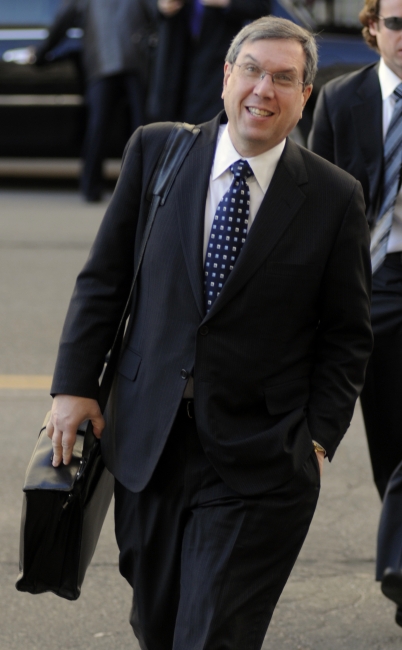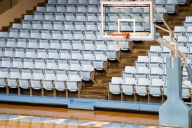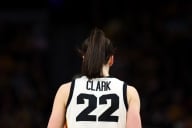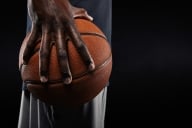You have /5 articles left.
Sign up for a free account or log in.

Jeffrey Kessler
Getty Images
The big-time college sports industry is facing potentially momentous legal challenges from almost every direction.
From the West Coast came the antitrust class action filed by the former University of California at Los Angeles star Ed O’Bannon over the National Collegiate Athletic Association’s use of his and other players’ likenesses for colleges' own financial gain. Last month the Chicago office of the National Labor Relations Board gave its approval to a bid by a group of Northwestern University football players to unionize.
Both of those cases could bring about significant changes in how big-time college football and men’s basketball are financed, governed and conducted.
But an even bigger case may be ready to unfold in a federal courtroom in New Jersey in the coming months, in the form of a lawsuit by a leading antitrust lawyer seeking to create a free market for how college athletes are compensated.
Jeffrey Kessler has a track record in the world of sports antitrust law that few can match, with major victories on behalf of the National Football League and National Basketball Association players' associations, among others.
Now he’s turning his attention to the collegiate level. That’s because it’s hard to distinguish big-time college football and basketball, he says, from their professional counterparts.
“Those two sports have become gigantic revenue-producing businesses, divorced from the educational operations or missions of the universities involved,” Kessler says. Yet while players in professional sports have won the right to seek fair compensation, “It is both illegal and fundamentally unfair that the athletes don’t get any opportunity to share in what they’re generating for these businesses.”
Kessler’s goal is simple: to have a court strike down as an illegal restraint on trade the restrictions that the NCAA and five member conferences collectively impose on what he views as the compensation of college athletes, in the form of their athletic scholarships.
If that were to happen, one might see Ohio State and Michigan in bidding wars for players from Chicago, or Auburn and Alabama one-upping each other for a highly rated quarterback from Opelika. (No cracks about how such auctions already occur.)
A court victory for Kessler and his plaintiffs – four current Division I football and men’s basketball players who seek to represent the interests of all current and future players in their sports – would forever change the economics of big-time athletics and arguably make it impossible for the NCAA to continue to justify its “amateur” model of college sports.
Sports law experts also say that it could also have significant implications related to Title IX and the treatment of female athletes, and potentially trigger tax implications for big-time sports programs, too.
Antitrust and the NCAA
The NCAA has lost its share of antitrust lawsuits in federal courts, notably the 1984 decision striking down the association's authority of the televising of college football and the 1998 ruling invalidating NCAA-imposed limits on the salaries of assistant coaches.
But as a general rule, cases that have sought to take down the NCAA's alleged restraints on athletes themselves have run smack dab into the long-held assertion that college athletes are amateur students, not professional workers.
That's the argument that NCAA officials and lawyers continue to make, most recently in a filing last week opposing an effort to combine Kessler's lawsuit with another antitrust suit challenging the NCAA's football scholarship rules. The lawsuit filed by Kessler, the NCAA argued, "makes a sweeping attack on the continued importance and vitality of the principle of amateurism in college athletics. Courts have upheld that principle against antitrust attack for more than 30 years.”
That case gets harder to make by the day, Kessler asserts. Twenty years ago, he says, football and men's basketball "made 1/20th of the money they make today, and as you look around, everything that’s going on is about money -- even conference realignments are based purely on financial considerations. The NCAA's ability to maintain [the amateur] façade has been decreasing at an accelerating rate."
Players seem to be gaining ground in public opinion polls about the view of college athletics, as they seem to be in other recent legal challenges over this contested terrain.
Legal analysts give the player likeness cases a good shot at winning -- the video game maker that was targeted with the NCAA in that lawsuit has already settled -- and the NLRB ruling in the Northwestern unionization case provided language that could certainly prove helpful to Kessler's case. ("[P]layers receiving scholarships to perform football-related services for the Employer under a contract for hire in return for compensation are subject to the Employer’s control and are therefore employees within the meaning of the [National Labor Relations] Act.")
Kessler is essentially asking the courts to decide that players are employees whose compensation is being illegally constrained (to the amount of an athletic scholarship), and to lift those restrictions to open the market. Under such a scenario, the "total competitive landscape will change," he says. "Maybe Ohio State will say, we're going to pay X amount a year, which we'll put in trust for when they leave school. The more years they stay, the more they'll get. Another school might not offer more than the scholarship.
"That’s what happens in a market. It doesn't force the schools to do anything except what they decide."
Kessler acknowledges the possibility that a settlement could occur that "puts some system in place" to provide meaningful compensation for all future football and men's basketball players.
What exactly that would look like is unclear, but he hinted that the sorts of changes that some people within the NCAA are talking about now -- in which the wealthier sports programs might offer provide scholarships valued up to the full cost of attendance, or give some sort of small stipend -- would not cut it.
While another lawyer without Kessler's resources and resume might be willing to get a nice payday for his clients, "if I get my class certified, there won't be any settlement without real change in the system," he says. "That's why I'm on this case."
Crumbling Walls
Kessler and some sports law experts disagree on just what kind of changes such a result could bring about in the college athletics system.
He rejects as "canards" favored by supporters of the NCAA the idea that significant pay for some male football and basketball players would create either gender equity problems for universities or expose big-time sports programs to tax problems. "These are the kinds of myths that the NCAA tries to throw out there" as scare tactics, Kessler says.
Ellen Staurowsky, a professor of sport management at Drexel University who writes widely about Title IX, says it is feasible that if male basketball and football players were to be declared workers, they could be compensated without requiring female athletes who were still deemed students to receive equitable amounts. After all, she says, Title IX is about access to an education; under the law, "there is no worker calculation."
"Our understanding of Title IX is that the system is an education-based system," she says. "If it's determined that within these multiple universes of college sports, one of these universes happens to be a college sports market place, rather than an educational enterprise, then Title IX is less likely to be brought to bear."
Michael McCann isn't so sure. Play out the scenarios in which Kessler's lawsuit prevails and male football and basketball players are deemed employees who can compete in a free market.
"If male college athletes are paid, and women college athletes are not paid, but they're both still considered student-athletes, then it seems likely that Title IX is implicated," says McCann, a professor of law at the University of New Hampshire and professor of law and director of its Sports and Entertainment Law Institute.
"Under an alternative scenario, let's say that athletic departments become business spinoffs in which the players are employees of athletic departments. At that point the Title IX analysis becomes a little less clear, and there may be no implications. But that raises a whole lot of other issues, including that those spinoffs would probably be taxed as businesses.
"And at that point," McCann says, "you have to think that there'd be talk about whether college football and basketball really deserve the tax exemption" they now receive as educational enterprises.
Those sorts of scenarios -- which could transform the college sports enterprise as we know it -- are why the various legal challenges now facing the NCAA deserve close attention.









